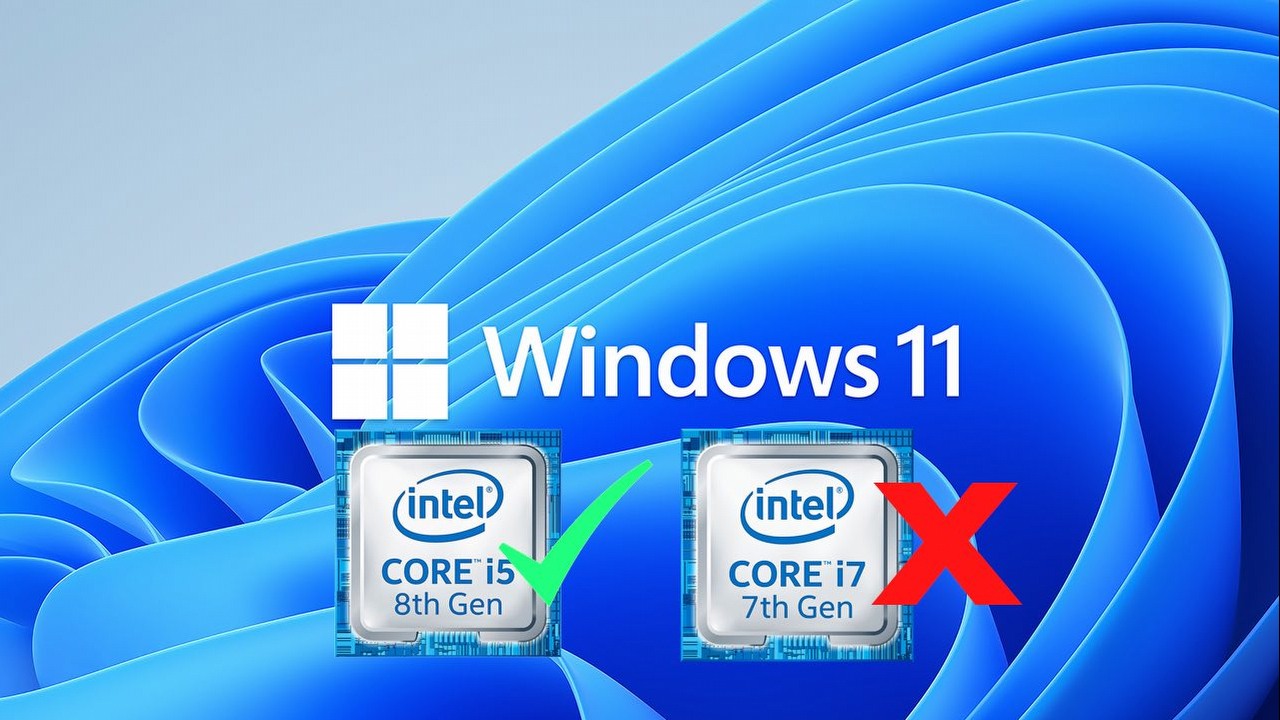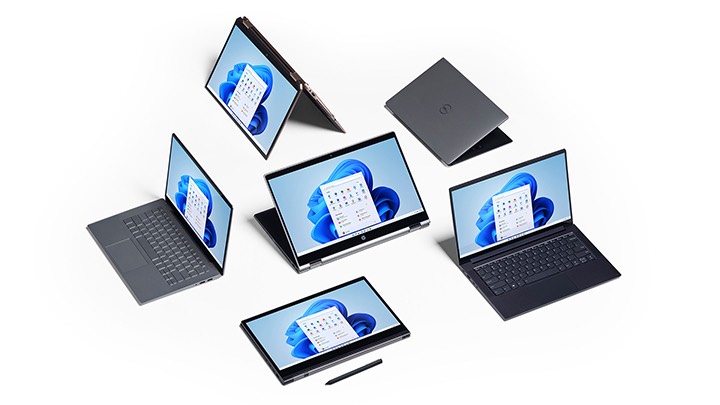Windows 11 Won't Support Ryzen 1000 series and Intel CPUs Below 8th Gen
The list of processors officially supported by Windows 11 turns out to be surprising. Microsoft bets on the latest generations and cutts off many popular models, at least officially.

The dust has settled after the presentation of the new Microsoft OS - Windows 11 - but it does not mean the end of emotions associated with it. First there was the buzz about the incompatibility of many newer computers with Windows 11 in the absence of TPM module version 2.0, which is responsible for hardware data encryption. According to Microsoft's latest documentation, module version 1.2 may not be enough and you'll need to have TPM 2.0, which is often disabled by default in the BIOS.
Now Microsoft has mixed up even more, presenting a list of processors officially supported by the new system. It turns out that requirements are associated with the possession of quite modern hardware: AMD Ryzen 2000 series or newer and Intel's 8th-gen CPU or newer. However, this does not necessarily mean that we will not install the latest Microsoft system on an older processor.

The level of confusion is considerable, because an early version of Windows 11, which leaked before the release, could be easily installed on older processors. From what is known so far, the company has set a kind of two-tier system requirements, the so-called "hard" and "soft".
"Hard" will determined the ability to install the system and at the moment they are as follows:
- Processor: 1 (GHz) or faster with 2 cores or more;
- RAM: 4 GB;
- Disk space: 64 GB or greater;
- Trusted Platform Module (TPM) version 2.0;
- Graphics Card: DirectX 12 compatible, WDDM 2.0.
The "soft" requirements are to be optional - if they are not met Microsoft will simply "not recommend" the installation of Windows 11, and "soft" requirements are to include older generation processors not present on the official list.
It is not known how the technical support, in this case, will look like; we also will not see computers with Windows OEM license, which will not meet both the "hard" and "soft" requirements.
You can expect that the list will change a bit and more CPUs will be added by the time the system is released. Anyway, when we take into account the DX12 compatible graphics card (DX9 in the case of Windows 10) and the TPM module, Windows 11 will have quite a lot of requirements, which will already exclude many potential buyers.
- Microsoft Teams will now monitor who is actually working in the office. And the boss will be able to check it at any time
- „Let him sit in the middle of this stupid office.” Microsoft CEO wants everyone to work in open space, not remotely
- George R.R. Martin asked ChatGPT to write a sequel to Game of Thrones, then took the result to court
0

Author: Darius Matusiak
Graduate of the Faculty of Social Sciences and Journalism. He started writing about games in 2013 on his blog on gameplay.pl, from where he quickly moved to the Reviews and Editorials department of Gamepressure. Sometimes he also writes about movies and technology. A gamer since the heyday of Amiga. Always a fan of races, realistic simulators and military shooters, as well as games with an engaging plot or exceptional artistic style. In his free time, he teaches how to fly in modern combat fighter simulators on his own page called Szkola Latania. A huge fan of arranging his workstation in the "minimal desk setup" style, hardware novelties and cats.
Latest News
- End of remote work and 60 hours a week. Demo of Naughty Dog's new game was born amid a crunch atmosphere
- She's the new Lara Croft, but she still lives in fear. Trauma after Perfect Dark changed the actress' approach to the industry
- „A lot has become lost in translation.” Swen Vincke suggests that the scandal surrounding Divinity is a big misunderstanding
- Stuck in development limbo for years, ARK 2 is now planned for 2028
- Few people know about it, but it's an RPG mixing Dark Souls and NieR that has received excellent reviews on Steam, and its first DLC will be released soon

